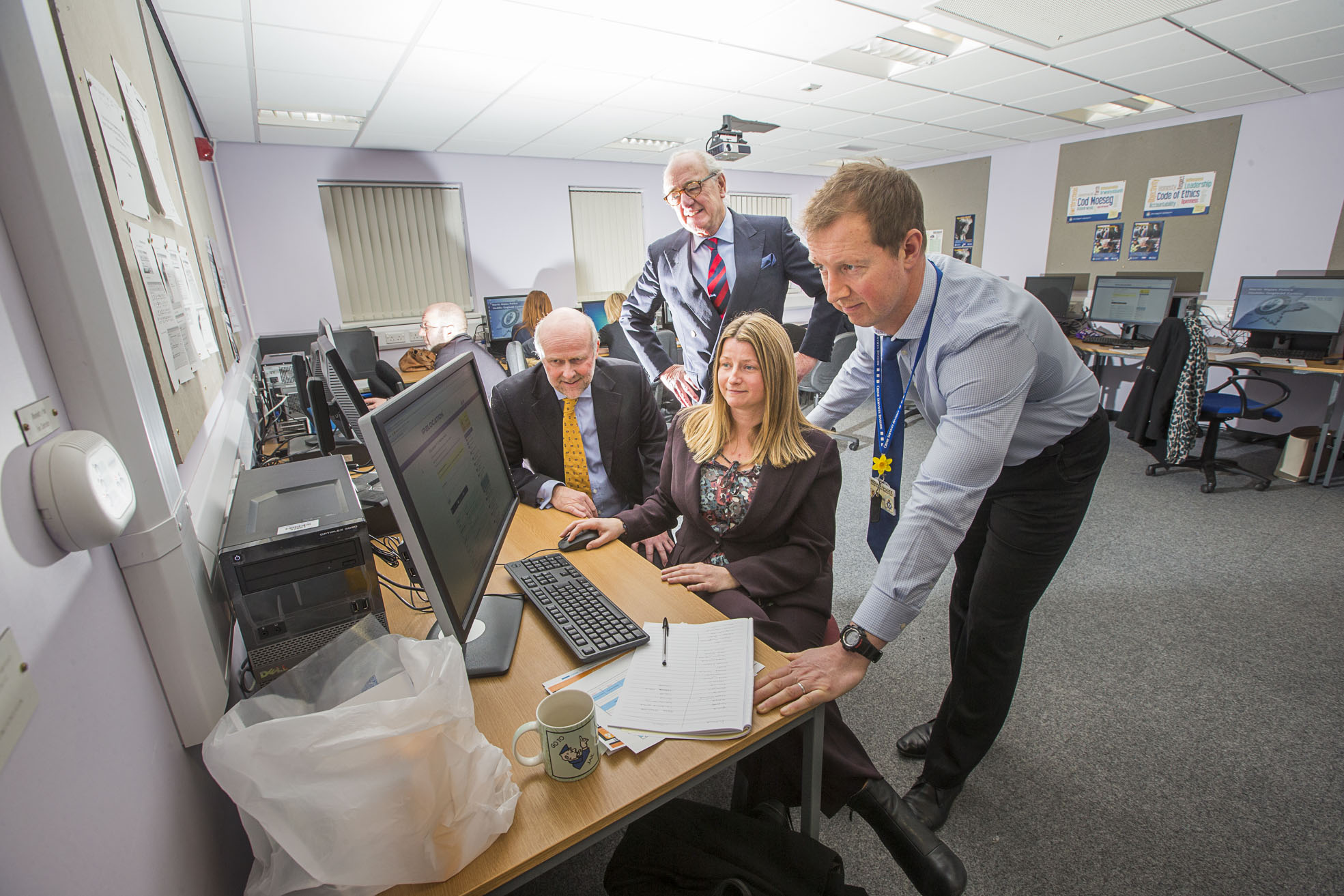A crime tsar has defended the use of internet surveillance to catch cyber criminals.
According to North Wales Police and Crime Commissioner Winston Roddick CB QC, there was always a balance to be struck between personal freedom and public safety.
Mr Roddick was speaking after attending a training session for police officers at the police station in Penygroes, in Gwynedd, as part of a new campaign to combat an increase in cyber crime by serious and organised crime groups targeting North Wales.
North Wales Police launched their St Asaph-based Cyber Crime Team to coincide with National Cyber Crime Awareness Week.
The force has pledged to train more than 100 officers to combat the growing threat of online crime.
The campaign is being watched closely by forces in other parts of the UK.
The team have also agreed to hold training sessions for groups of vulnerable people so they can learn to stay safe online.
North Wales Police and Crime Commissioner Winston Roddick CB QC says people rightly want assurances that the police are one step ahead of the criminal elements that use the internet to commit crime.
He said: “There will always be tension between freedom and liberty and surveillance. But the security of people is essential if they are to be free to enjoy their liberty. Surveillance is necessary to protect those freedoms.
“We need to be able to use all legal means to catch and arrest criminals who use the internet to commit crime and without effective internet surveillance that is not always possible.
“The police are savvy and are adapting to change, that is evident from what I have seen today. The police have to use every resource at their disposal if they are to prevent and detect crime. And that has to include electronic and internet surveillance.
“North Wales Police is ahead of the game and setting an advanced standard that many other forces are now looking up to. Policing priorities are fluid and constantly shift and change.
“We have addressed the threat of cyber crime in our Police Crime Plan. The simple fact is that whereas cyber crime is a relatively new phenomenon the police, and particularly North Wales Police, are on top of it and adapting strategies to deal with it.
“The public need to know that their police are technically enabled and are able to use all means at their disposal to combat crime in all its forms.”
Deputy North Wales Police and Crime Commissioner Julian Sandham added: “The Cyber Crime Team, who have all received enhanced training, have assisted with a number of high profile investigations as well as forging links with businesses and the National Crime Agency to ensure key messages to identify and reduce opportunities of falling foul of this ever increasing problem.
“I’m delighted North Wales Police is leading the way when it comes to tackling this ever increasing issue. The Cyber Crime Team is able to provide advice and guidance on both a technical and tactical level as well as having the enhanced capability to deal with complex cyber crime investigations.”
Detective Sergeant Pete Jarvis of the North Wales Cyber Crime Team promised they would pursue cyber criminals both across North Wales and internationally.
He said: “We will be working proactively to target criminal vulnerabilities and seek to prevent criminal opportunities whenever we can. We will also support partners in industry and law enforcement to better protect themselves against the threat of cyber crime.
“And by providing a highly visible investigative response to incidents of cyber crime we will assist other police forces and wider law enforcement agencies to prevent cyber-enabled crime and pursue those who utilise the internet for criminal means.”
There was, he said, a great deal people could do to keep themselves safe.
He added: ““Research indicates that up to 80% of cyber related offences could be avoided if simple computer and network hygiene guidance is followed.
“We would recommend using up-to-date anti-virus software, install all computer security updates as soon as they are released, use complex passwords for all accounts and never use the same password for multiple accounts.
“And never click on links in e-mails which suggest you have won a competition you did not enter and never clink on links in e-mails that you do not recognise as these might install malicious software on your computer or take you to bogus websites.”
If you think you may have been the victim of cyber crime, require further information or have any information about suspected offenders contact the police on 101 or anonymously via Crimestoppers on 0800 555 111.
Alternatively you can report suspected online crime to Action Fraud at www.actionfraud.police.uk
For further information about staying safe online visit www.getsafeonline.org/protecting-yourself/










